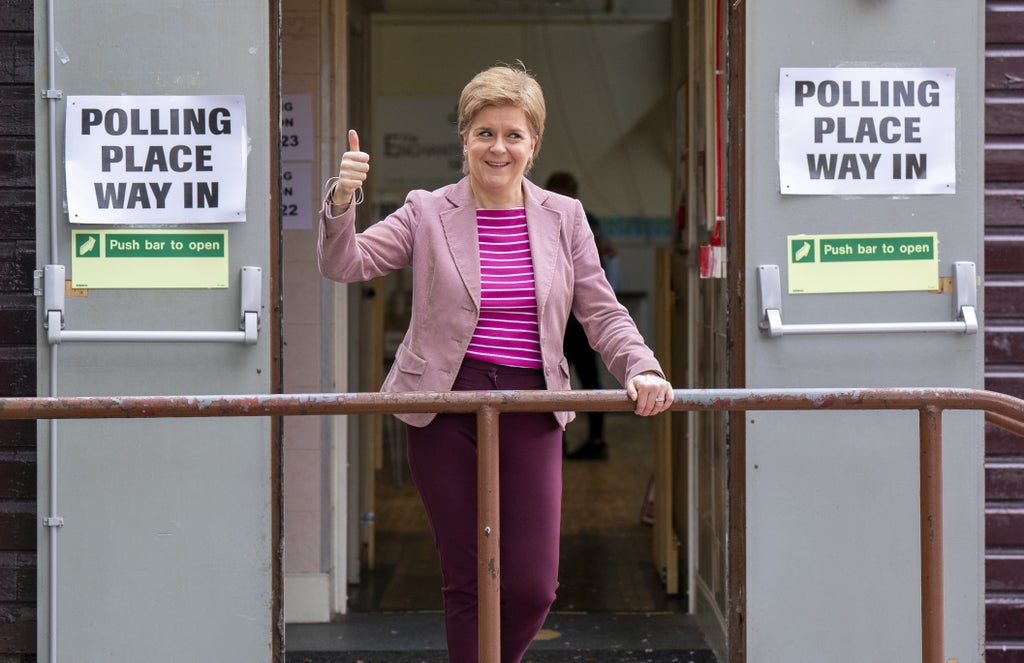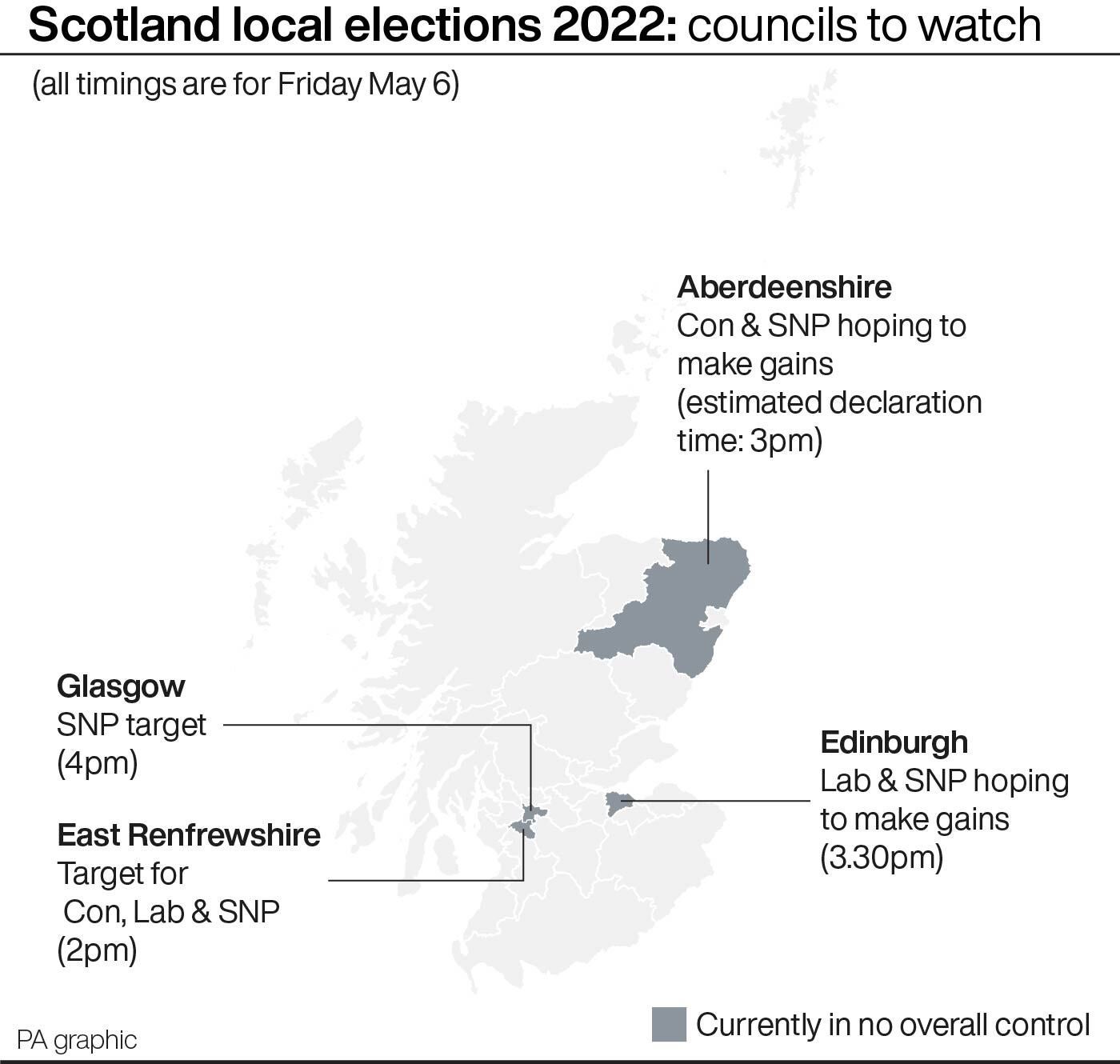
Party leaders have joined Scots in going to the polls to vote in local council elections.
SNP leader and First Minister, Nicola Sturgeon, and her Labour rival, Anas Sarwar, were at polling stations in Glasgow on Thursday morning.
Ms Sturgeon visited her local polling station in the Baillieston area of Glasgow, accompanied by her husband, SNP chief executive, Peter Murrell.
She met SNP candidates, Alex Kerr and Lauren Martin, on Thursday, having already voted by post.
Ms Sturgeon chatted and took selfies with some voters outside and held their baby.
Earlier, Mr Sarwar voted at the polling station at Pollokshields Burgh Hall in Glasgow.
Mr Sarwar, who was accompanied by his wife Furheen Sarwar, handed in a postal vote he had completed.
Scottish Green co-leader, Patrick Harvie, also voted in Glasgow, taking the opportunity to back his party’s candidate in the Partick East and Kelvindale ward.
Fellow Green co-leader, Lorna Slater, cast her vote in Edinburgh, with Scottish Liberal Democrat leader Alex Cole-Hamilton also voting in the capital.
Scottish Conservative leader, Douglas Ross, wished all his party’s candidates good luck, as he voted in Moray.
Former first minister and Alba party leader, Alex Salmond, meanwhile, cast his ballot at the polling station in Strichen, Aberdeenshire.
The party leaders cast their votes at the end of an election campaign which has been dominated by national issues and the cost-of-living crisis.
The cost-of-living crisis, prompted by an increase in fuel bills, national insurance contributions and inflation, have been top of the agenda for many.

Public anger over lockdown parties in Westminster, which have seen Boris Johnson, his wife Carrie Johnson and Chancellor Rishi Sunak, all fined by the police, could also impact on the Tories fortunes.
Recent polls have suggested the party could fall to third place, with Labour looking to oust them from second spot.
And while the SNP are certain to win most seats in the election, the STV (single transferrable vote) system of proportional representation used in local government ballots in Scotland makes it difficult for parties to win overall control of councils.
Counting of votes will take place on Friday, with results from the 32 different local authorities expected to be declared throughout the afternoon.
After that, talks will take place to determine whether parties can operate as minority administrations, or if local coalitions can be formed.
At the last council elections in 2017, the SNP secured 431 council seats, with the Tories seeing 276 councillors elected, narrowly ahead of Labour, who returned 262 representatives. A total of 172 independent councillors were elected, along with 67 Liberal Democrats and 19 Greens.







